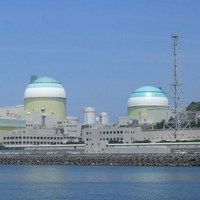Japanese Foreign Minister Katsuya Okada's reiteration of support last week for the Iranian fuel swap proposal outlined in the Tehran Declaration is the latest sign of a strategic reorientation in Japanese international nuclear policy. That this announcement was accompanied by reports of Japan exploring the possibility of constructing quake-resistant nuclear plants in Iran is further indication that a shift in Japanese nuclear diplomacy is being effected -- one that doesn't necessarily adhere to a U.S.-led approach, but instead seeks to leverage Japan's inherent strengths in the global nuclear renaissance to advance its own geopolitical interests.
Despite being the only country to have ever suffered a nuclear attack, Japan has over the years built up significant capability in the civil nuclear sphere. Thirty percent of its electricity requirements are supplied by nuclear energy. Japan also has the world's most mature nuclear manufacturing sector. For instance, 80 percent of the world's supply of reactor pressure vessels -- a critical component of light water reactors, which are the dominant type of nuclear reactor in use today -- originates from a single Japanese company. Besides having a major commercial nuclear energy segment, Japan is also a world leader in the research and development of various nuclear technologies, ranging from advanced proliferation-resistant fuel cycles to waste management and reactor safety.
The focus on safety and nonproliferation are key to Japan's positioning in the new nuclear age as a country that can provide concrete, technically oriented solutions to enable the spread of safe nuclear energy. An example is the training support Japan has provided over the past several years in all aspects of nuclear safety to personnel from Russia, Ukraine, Bulgaria, Hungary and the Czech and Slovak Republics. The training assumes added significance given continued international concerns over safety standards in the nuclear sectors of the former Eastern Bloc.

